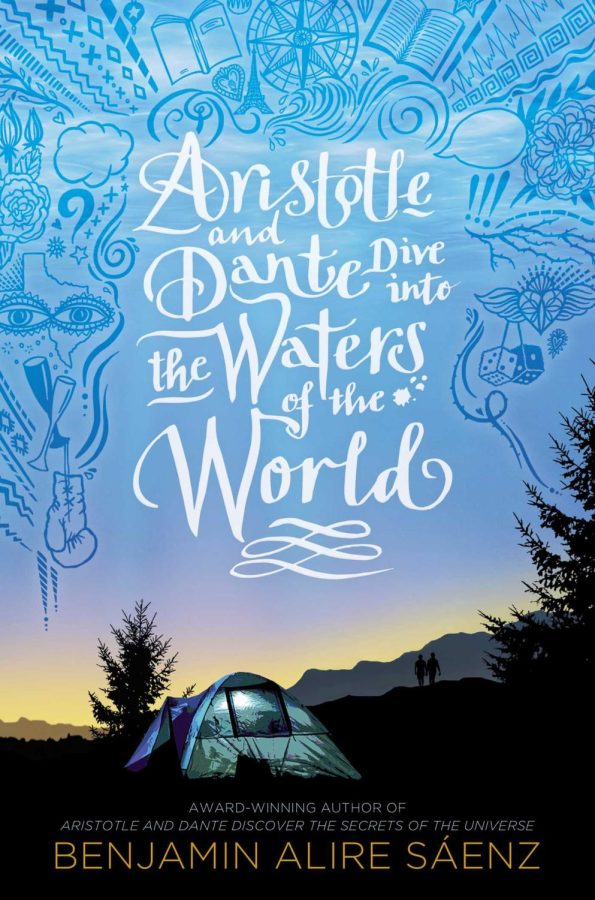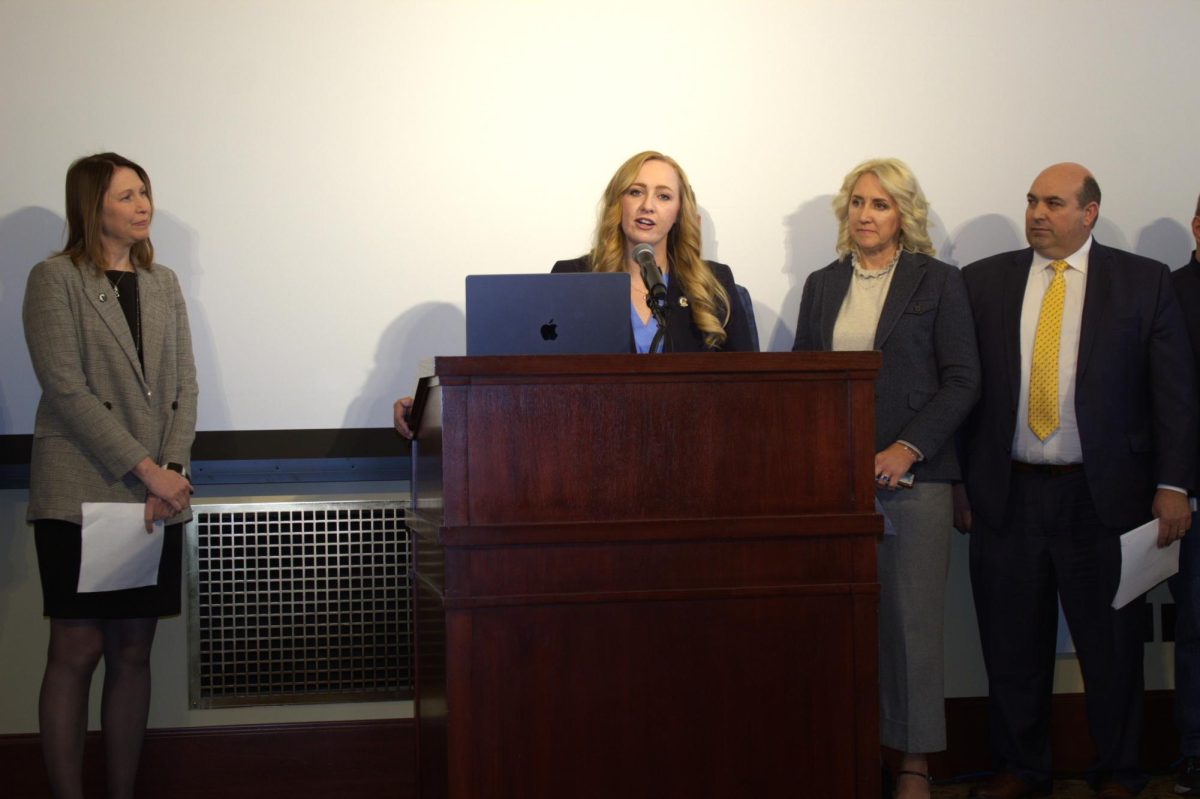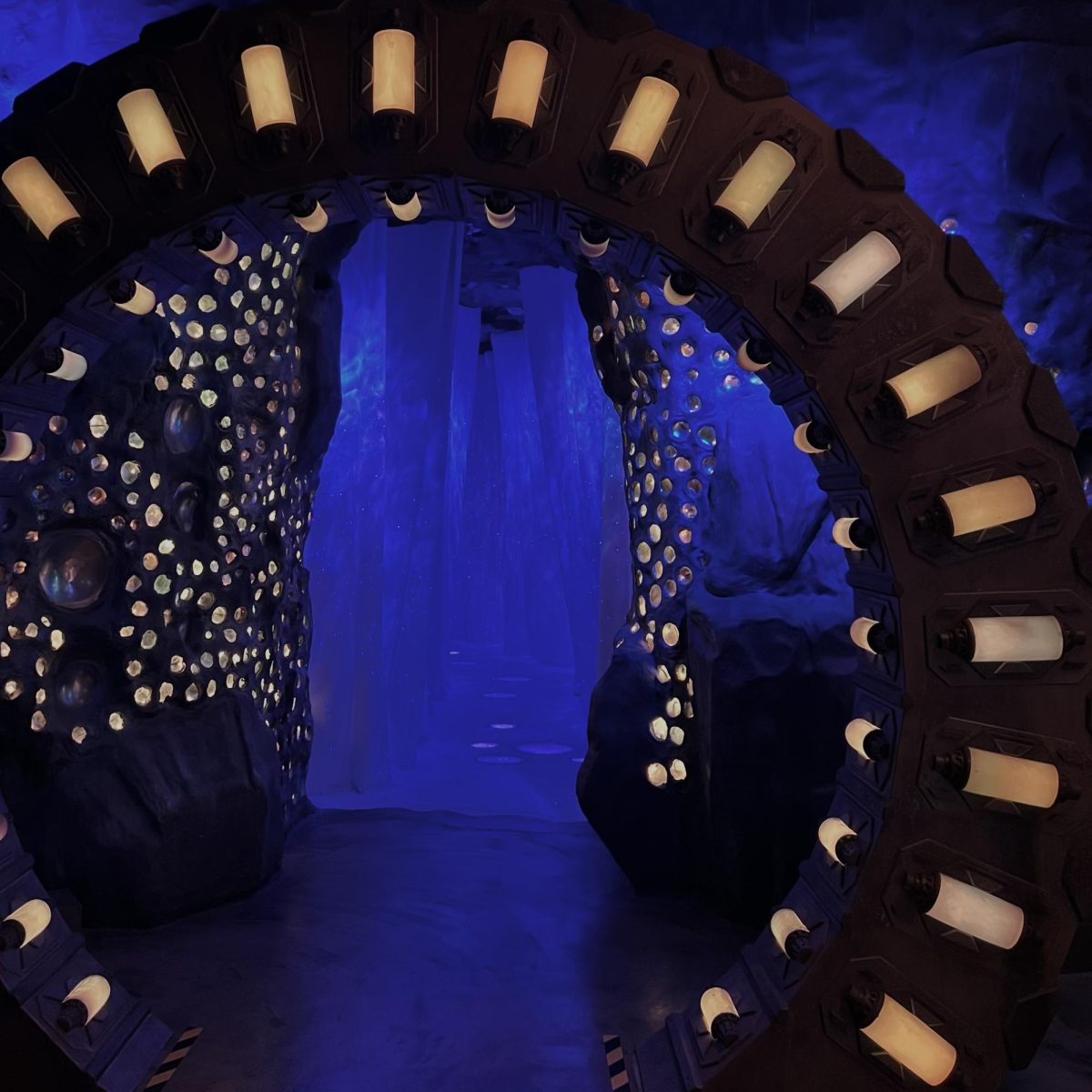‘Aristotle and Dante Dive Into The Waters of The World’ is A Wondrous Sequel
Cover Art for “Aristotle and Dante Dive Into The Waters of The World” (Photo Courtesy: Simon and Schuster Publishing)
January 18, 2022
Benjamin Alire Sáenz’s novel “Aristotle and Dante Dive into The Waters of The World” has been highly anticipated as a sequel to 2012 novel “Aristotle and Dante Discover The Secrets of The Universe” since it was announced in Feb. 2021. The book revisits beloved characters but allows them to grow as they were meant to.
Rediscovering the Secrets
The long-awaited sequel finds Aristotle Mendoza and Dante Quintana right where the first book left them — stargazing in a truck bed in El Paso, Texas. The year is 1988, they are in love and unsure of what the future holds for their relationship.
Tension builds throughout the novel as Aristotle and Dante learn what it means to make a place for themselves in the world while hiding their love. The notion of becoming cartographers who will imprint their lives onto the map of the world is brought to life throughout the novel in Sáenz’s poetic prose.
Aristotle and Dante develop as characters wonderfully — they have started to grow up since the events of the first book. Their relationships with each other, their parents and the world around them authentically evolve in complexity. There are mentions of the AIDS pandemic and several instances where characters are harassed for being gay. These scenes, while difficult to read, show the reality of life for many gay people in the 1980’s.
Perhaps the most endearing change is Aristotle’s ability to open up to his parents and his friends, in direct contrast to the Aristotle of the original novel. He slowly becomes less of the withdrawn and reserved boy that is introduced to Dante Quintana one summer while swimming. Aristotle becomes a young man who is deeply in love and passionate about the things that he believes in, and becomes one of my favorite characters.
Mapping It Out
Having waited for this book since 2018, I was unsure what I would find when I turned the first page. Part of me was afraid that the characters wouldn’t feel the same as they had in the original novel. That was not the case. While the characters did evolve and become more connected to each other, they largely remained the same while Sáenz’s writing underwent a metamorphosis.
The scenes involving Aristotle and Dante’s parents were some of the most transformative of the novel. Aristotle is able to get closer to his quiet and reflective father and his relationship with his mother grows even more endearing as they bond over grief and cope with tragedies past and present.
The writing fell short in some places where the voice and tone didn’t quite feel the same as the language of the original novel. Some of that might be attributed to the fact that the novel took such a long time to write or to the development of Aristotle’s character. Still, Sáenz’s poetic style of writing drew me back to this world and these characters after so many years. His ability to tell a story that is emotive and real truly captivated me.








